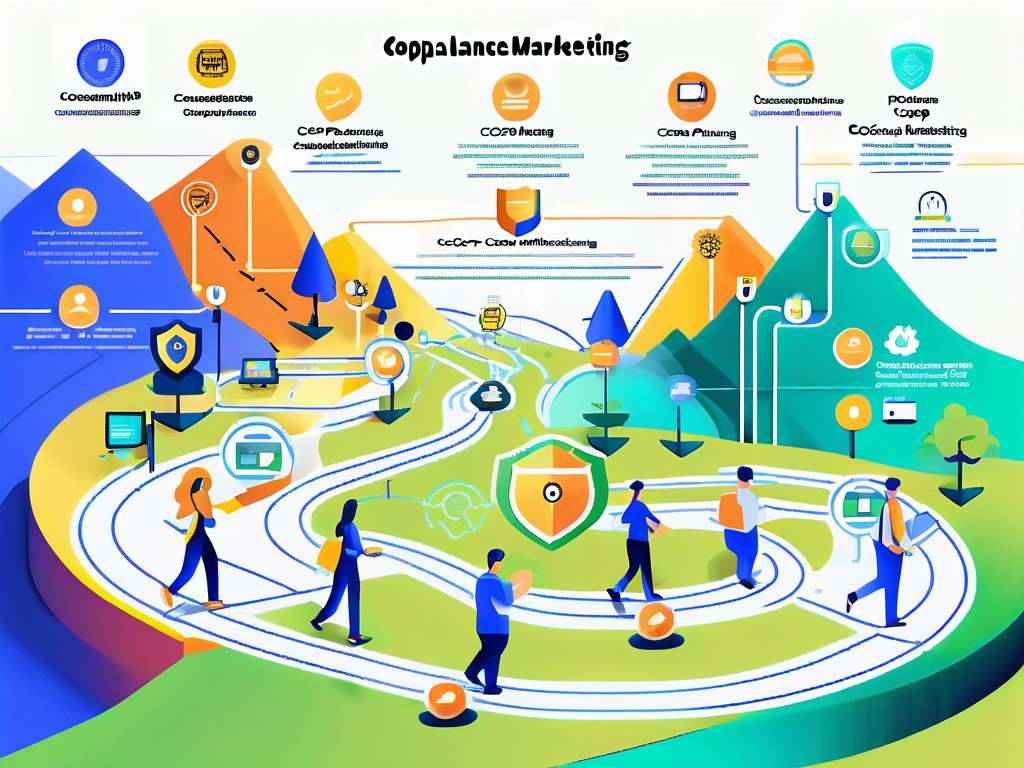What is COPPA and Why is it Important?
The Children’s Online Privacy Protection Act (COPPA) was enacted in 1998 to protect the privacy of children under the age of 13. This landmark legislation focuses on the collection of personal information from children online and the requirement to obtain verifiable parental consent before such data is collected. Given the rise of digital marketing and the proliferation of online services aimed at children, understanding COPPA is crucial for any childcare center engaging in digital marketing strategies.
The Basics of the Children’s Online Privacy Protection Act
COPPA applies to operators of websites and online services directed to children, as well as those that knowingly collect information from children. The requirements of COPPA are explicit: childcare centers must inform parents about what personal information is collected, how it will be used, and who it may be shared with. Additionally, they must ensure that they obtain verifiable consent from parents or guardians before collecting, using, or disclosing personal information from children.
This legislation not only establishes strict guidelines but also emphasizes the importance of transparency and accountability for organizations dealing with children. As digital marketing continues to evolve, awareness of COPPA will enable childcare centers to create compliant marketing strategies while fostering trust with families. The act also mandates that operators maintain the confidentiality, security, and integrity of the information they collect, which is essential in building a safe online environment for children.
Schedule a FREE 30 minutes Session with Us!
The Role of COPPA in Digital Marketing
In the context of digital marketing, COPPA plays a crucial role in shaping how childcare centers engage with their audience. These regulations guide marketers in understanding what constitutes ethical marketing to children and their parents, ensuring they respect privacy boundaries.
Effective digital marketing strategies entwined with COPPA compliance can contribute to stronger client relationships. By being conscientious about children’s privacy rights and the need for parental consent, childcare centers can demonstrate their commitment to safety and integrity, strengthening their brand positioning while advocating for children’s rights online. Furthermore, compliance with COPPA can enhance a childcare center’s reputation, as parents are increasingly aware of and concerned about their children’s online safety. By prioritizing these regulations, centers can not only protect children but also differentiate themselves in a competitive market, appealing to parents who value responsible and ethical practices.
Additionally, the implications of COPPA extend beyond mere compliance; they encourage childcare centers to innovate in their marketing approaches. For instance, centers can develop engaging content that not only attracts children but also educates parents about the importance of online safety and privacy. This dual focus not only adheres to COPPA guidelines but also positions the center as a thought leader in child safety, fostering a community of informed and engaged families.
The Implications of COPPA for Childcare Centers
Childcare centers must navigate various implications stemming from COPPA as they develop their digital marketing approaches. Understanding these implications is a pivotal part of being compliant and successful in engaging families.
How COPPA Affects Online Advertising and Promotions
One of the most significant implications of COPPA for childcare centers is how it affects online advertising and promotions. Since companies are prohibited from collecting personal data from users under 13 without parental consent, childcare centers must rethink their digital marketing methods. Traditional advertising may be less effective, as it requires careful consideration of the relationships with parents and other caregivers.
Childcare centers are encouraged to focus on promoting themselves through content marketing, such as informative blog posts and engaging social media content directed toward parents, rather than directly targeting children. This pivot can align with COPPA’s requirements while still driving engagement and attracting clients. Additionally, centers can leverage community events and partnerships with local businesses to foster organic word-of-mouth marketing, which not only adheres to COPPA guidelines but also builds a strong community presence.
Privacy Policies and COPPA Requirements
To meet COPPA requirements, childcare centers must have clear and comprehensive privacy policies that outline their data collection practices. These policies should address the types of personal information collected, the purpose of collection, and how the information will be used. It’s essential that this information is easy to access and understand for parents.
Moreover, privacy policies should detail how parents can review their child’s information, request deletion, and provide consent. These components are vital for transparency and build trust with parents, making them feel more secure in choosing a childcare center that respects their child’s privacy. In addition to these policies, childcare centers should consider implementing regular training for staff on COPPA compliance and privacy best practices, ensuring that everyone involved understands the importance of protecting children’s data and fostering a culture of privacy within the organization.
Furthermore, childcare centers can enhance their commitment to privacy by actively engaging with parents through workshops or informational sessions that explain COPPA and its implications. This proactive approach not only educates families but also positions the center as a responsible and trustworthy entity in the community. By prioritizing transparency and education, childcare centers can create a supportive environment that reassures parents about their children’s safety in the digital landscape.
Schedule a FREE 30 minutes Session with Us!
Steps to Ensure COPPA Compliance in Digital Marketing
Implementing COPPA compliance is not merely a one-time task; it requires consistent effort and adaptation as digital landscapes evolve. Childcare centers need to establish thorough processes to ensure ongoing compliance with COPPA regulations. This involves regular audits of marketing practices, updating privacy policies, and training staff on the importance of protecting children’s online privacy. By fostering a culture of compliance, childcare centers can not only meet legal obligations but also build a reputation for being trustworthy and responsible in their digital interactions.

Understanding the Age Verification Process
One crucial step in ensuring compliance is implementing an effective age verification process. Childcare centers must make reasonable efforts to determine the age of their users. Simple mechanisms such as a pop-up asking for a birth date can be a starting point, but this alone may not suffice. More robust solutions might be needed depending on the nature of the services offered. For instance, utilizing third-party age verification services can provide an additional layer of security and assurance that the information collected is accurate and reliable.
Verifying age helps ensure that only those above the age of 13 can access content designed for older users, thus protecting children from exposure to unsuitable material and ensuring compliance with COPPA. Moreover, maintaining a clear record of age verification efforts can be beneficial in case of audits or inquiries from regulatory bodies, demonstrating the childcare center’s commitment to adhering to COPPA guidelines.
Implementing Parental Consent Mechanisms
Equally important is the implementation of parental consent mechanisms. Childcare centers should invest in systems that facilitate obtaining parents’ explicit consent before collecting any personal data from children. This could include digital forms requiring parental signatures or interactive verification processes that confirm identity before data collection. Additionally, offering parents multiple options for consent—such as through email, text message, or even phone calls—can enhance engagement and ensure that consent is obtained in a manner that is convenient for them.
Ensuring that these mechanisms are user-friendly and secure is vital for gaining user trust and compliance with COPPA regulations. Parents are more likely to engage with childcare services when they feel their children’s privacy is respected and protected. Furthermore, providing clear and accessible information about how their children’s data will be used can alleviate concerns and foster a positive relationship between parents and childcare providers. Transparency in data practices not only complies with COPPA but also builds a foundation for long-term trust and loyalty among families.## Potential Consequences of Non-Compliance
The consequences of failing to comply with COPPA can be severe, ranging from legal actions to reputational damage. Understanding these potential repercussions can motivate childcare centers to prioritize compliance seriously.

Legal Repercussions of Violating COPPA
Violations of COPPA can lead to significant legal repercussions, including fines of up to $43,792 per violation. When entities are found guilty of collecting unauthorized personal information from children, they may face enforcement actions from the Federal Trade Commission (FTC), leading to costly legal battles and financial penalties that can cripple small childcare centers.
Additionally, such legal issues may lead to further scrutiny and stricter regulations, thereby creating a difficult environment for childcare businesses to operate in. Avoiding legal repercussions should be enough motivation for childcare centers to implement robust COPPA compliance measures.
Impact on Brand Reputation and Trust
Beyond legal ramifications, non-compliance can profoundly affect brand reputation and trust. Parents are increasingly vigilant about their children’s online safety, and any perceived negligence in safeguarding their privacy can result in a loss of clientele. A breach of trust can lead to negative reviews and a decline in business, as families seek out institutions they feel are prioritizing their children’s safety.
Childcare centers that foster an image of protecting children’s privacy and demonstrating their commitment to COPPA compliance can enhance their reputation, contributing to long-term success and stability.
Schedule a FREE 30 minutes Session with Us!
Navigating the Future of Digital Marketing with COPPA
As digital marketing continues to evolve, childcare centers must remain vigilant and adaptable. The world of online engagement is rapidly changing, and so are the regulations that govern it. Actively keeping up with these changes ensures sustained compliance and effective marketing strategies.

Keeping Up with Changes in COPPA Regulations
Childcare centers need to stay informed about amendments to COPPA regulations and related federal guidelines. Regularly reviewing compliance policies, attending relevant workshops, and participating in webinars can be instrumental in ensuring that centers maintain adherence to COPPA requirements.
Staying informed allows childcare centers to anticipate changes, adapt their marketing strategies accordingly, and communicate changes transparently to parents, maintaining compliance while retaining a competitive edge in the digital marketing space.
Balancing Marketing Strategies with Privacy Protection
Ultimately, striking a balance between effective marketing strategies and rigorous privacy protection is essential for childcare centers. By creatively adapting marketing strategies that align with COPPA standards, centers can enhance their outreach while respecting children’s privacy.
This involves focusing on relationship-building with parents, utilizing safe marketing platforms, and crafting content that engages families rather than targeting children directly. In doing so, childcare centers not only comply with COPPA but also foster a trustworthy and supportive environment for the families they serve.







Share